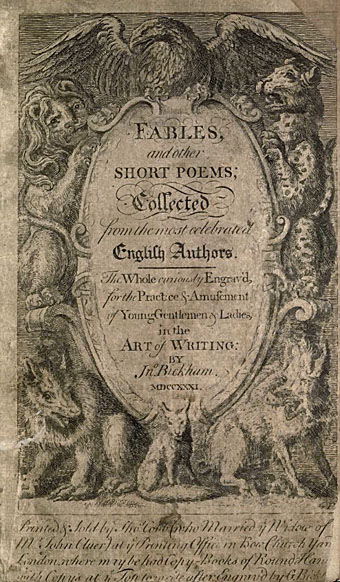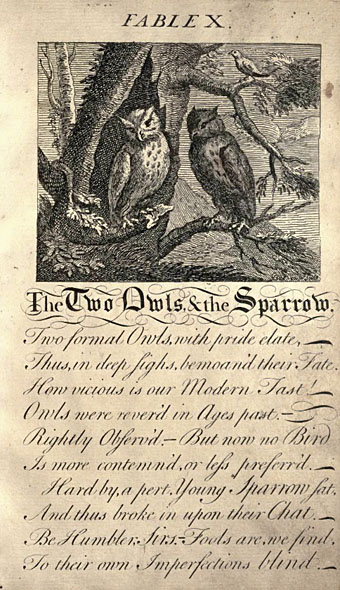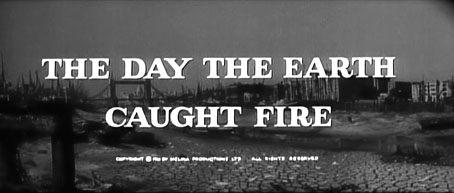Four out of five Britons repudiate creationism | Thank god for that.
Month: March 2009
John Bickham’s Fables and other short poems
Or Fables and other short poems : collected from the most celebrated English authors : the whole curiously engrav’d for the practice & amusement of young gentlemen & ladies in the art of writing to give its full title, a children’s primer from 1731 and another free title available at the Internet Archive. John Bickham was one of the famous family of engravers among whom George the Elder is particularly celebrated for his own stunning penmanship in The Universal Penman (1740), a book which is still in print. The moral fables here are mostly single-page verse pieces with titles such as The Lady and the Wasp or The Spaniel and the Camelion. One short piece, On Liberty, is especially pertinent following the weekend when the Convention on Modern Liberty declared its mission to resist the rise of the Total Surveillance State.
Oh Liberty! thou Goddess heav’nly bright,
Profuse of bliss, and pregnant with delight;
Eternal pleasures in thy presence reign,
And smiling Plenty leads thy wanton train.
Eas’d of her Load, Subjection grows more light,
And Poverty looks chearful in thy Sight.
Thou mak’st the gloomy face of Nature gay,
Giv’st Beauty to the Sun, and pleasure to the Day.
Elsewhere on { feuilleton }
• The illustrators archive
• The etching and engraving archive
Previously on { feuilleton }
• Letters and Lettering
• Studies in Pen Art
• Flourishes
Observer interview: David Lynch
Observer interview: David Lynch | Gaby Wood meets the mighty Mr. L.
Edward Judd, 1932–2009
Like the creations of the late Oliver Postgate, Edward Judd haunts my childhood imagination via the handful of very British science fiction and sf/horror movies he starred in during the 1960s. He did a great deal of acting before and after this—in the Seventies he was a very ubiquitous TV character actor—but it’s his run of genre films which remains notable. In these roles he was always the stalwart Everyman, usually with another older actor as co-star who supplies the requisite scientific explanations.
The first of these, The Day the Earth Caught Fire (1961), was a Val Guest production which followed the success of Guest’s Quatermass films in visiting another space-born calamity upon the world, this time an unprecedented heatwave caused by nuclear tests which throw the earth off its orbit. The film opens with a Ballardesque view of the River Thames parched to a thin stream, and features some great shots later of Judd stumbling through an abandoned, dust-strewn capital. The location work in the Daily Express building on Fleet Street adds to the realism, as does a strong script and decent performances.



